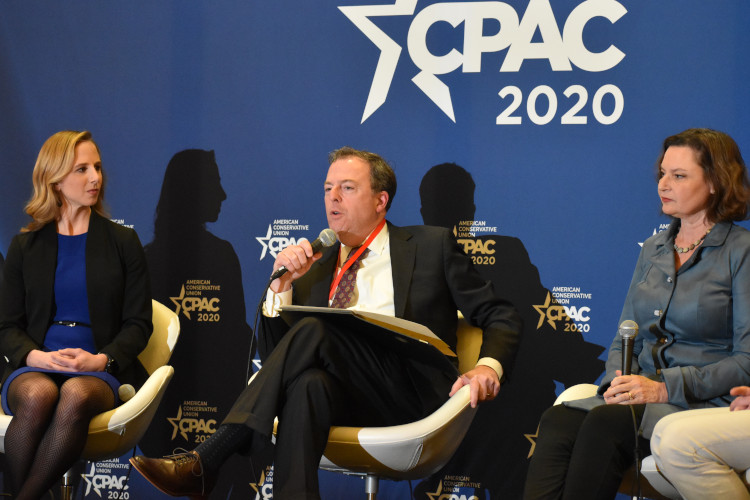
By Krystina Skurk
At CPAC 2020, Dr. Matthew Spalding, Dean of the Van Andel Graduate School of Government, moderated three panels on conservatism. Hundreds of CPAC attendees filled the room to hear the panelists’ debate on the future of conservatism, the family, and Big Tech.
During the first panel, “The Future of Conservatism,” Dr. Spalding moderated a discussion between Rusty Reno and Inez Stepman. One of the primary questions discussed was whether the principles of conservatism should be based on a creed or culture. Dr. Spalding concluded that perhaps the answer is both.
“The problem today is that the culture is no longer informed by the proper moral groundings of the American creed,” Dr. Spalding said. We are just creatures of our culture if there is nothing higher that we can make a principled, practical, and patriotic appeal to, he continued.
“If we aren’t referencing back to the founding, I don’t see what makes American conservatism American or conservative,” said Inez Stepman, Senior Policy Analyst with Independent Women’s Forum. Rusty Reno, editor at First Things, argued that we must sift through our past to determine which aspects will meet the problems we are facing today.
Dr. Spalding also moderated a panel on “The Future of the Family” with Terry Schilling, Mary Eberstadt, Rachel Greszler, and David Harsanyi. At the center of the debate was whether the family is better off now than it was 35 years ago and what role, if any, the government should have in strengthening the family.
While David Harsanyi, a senior writer at National Review, argued that the family is in a strong place, Terry Schilling, executive director of American Principles Project, vehemently disagreed. “The two stats that I would point to is the record-low marriage and birth rates that we have,” Schilling stated.
Deputy Secretary of Health and Human Services Eric Hargan also provided remarks. He talked about the importance of healthy families, and that “children that grow up in two-parent families are much more likely to graduate from high school and are twice as likely to graduate from college. Young men that grow up with a committed father are 75% less likely to have a child out of wedlock,” he said.
The last panel was titled “The Future of Social Media in the Public Square.” The panelists discussed the rise of “Woke Capitalism” and the discrimination conservatives face on various social media platforms. The panelists included Dan Gainor of the Media Research Center, Chris Butler of Americans for Tax Reform, and Jon Schweppe of the Americans Principles Project.
Though all agreed that the problem now is that many conservatives are being shadow-banned and de-platformed on social media, the disagreement between the panelists rests in how conservatives should respond. One side believes that trusting the market will allow competitors to rise, while the other believes more government intervention is necessary to protect free speech.